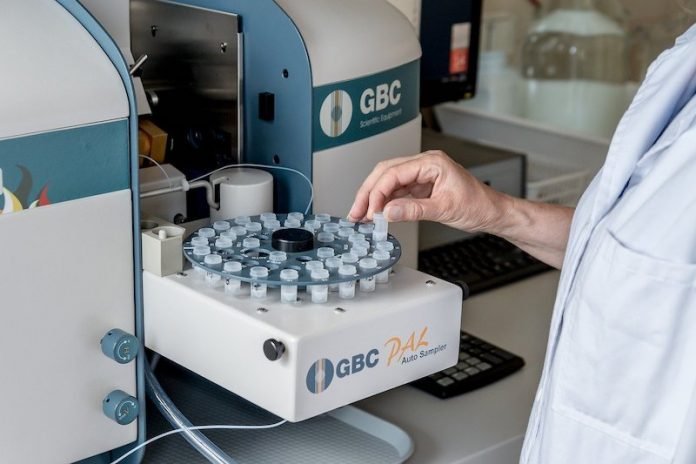
In a new study, researchers report that an improved urine-testing system for people suffering from kidney stones may enable patients to receive results within 30 minutes instead of the current turnaround time of a week or more.
The research was conducted by a team from Penn State and Stanford University.
Kidney stones occur due to buildup of certain salts and minerals that form crystals, which in turn stick together and enlarge to form a hard mass in the kidneys.
The stones move into the urinary tract and can cause blood in the urine, considerable pain and blockages in the urinary system.
Metabolic testing of a kidney stone patient’s urine to identify metabolites such as minerals and solutes that cause stones to form is key for preventing future ones.
This testing is currently done by requiring the patient to collect their urine over a 24-hour period in a large container.
The container is then sent to a lab for analysis and the results normally come back in 7 to 10 days.
The lengthy process, cumbersome collection procedure, and delay in obtaining the results render 24-hour urine testing to be underutilized in clinical practice despite guideline recommendations.
To solve the problems, the research team developed a biomimetic detection system called slippery liquid-infused porous surface (SLIPS)-LAB.
SLIPS is a dynamic, extremely low-friction smooth surface created by locking lubricating liquids in micro/nanostructured substrates.
This is inspired by nepenthes pitcher plants, which are carnivorous plants that have unique leaves shaped like pitchers and are filled with digestive liquid.
The plants have evolved extremely slippery liquid-infused micro-textured rims that cause insects to fall into the “pitcher.”
SLIPS-LAB works by enabling reagent and urine droplets to easily move over the slick surface of the testing device’s fluid addition channel and not get stuck.
The droplet is driven by a Laplace pressure difference, a small pressure force due to surface tension, induced by the geometry of the device.
This enables the reactants to combine with the urine at the necessary timed rate for a reaction.
The team says the technology doesn’t require a technician to run any test machinery, so it is possible to do the test in non-traditional settings, like a physician’s office or even the patient’s home.
The test results can then be read using a scanner or a cell phone, and the scanned image can then be analyzed using a computer algorithm.
All these steps would take approximately 30 minutes in a physician’s office. An added benefit is that SLIPS-LAB is more cost-effective than regular, 24-hour testing.
Another promising result of the research was that the test also works as a spot test, which means a patient can monitor certain levels in their urine without 24-hour collection.
One author of the study is Pak Kin Wong, a professor of biomedical engineering and mechanical engineering.
The study is published in Science Advances.
Copyright © 2020 Knowridge Science Report. All rights reserved.



